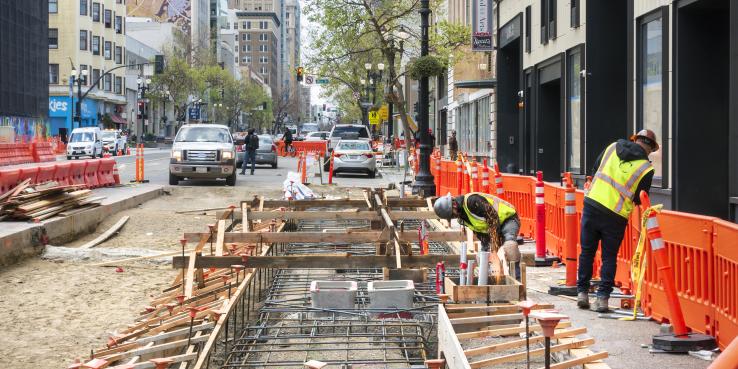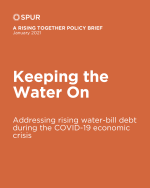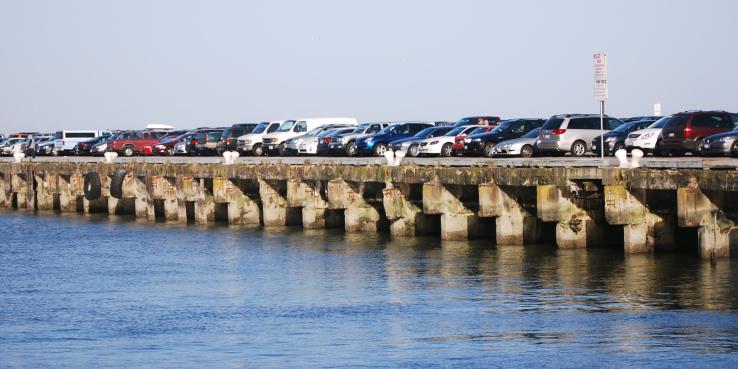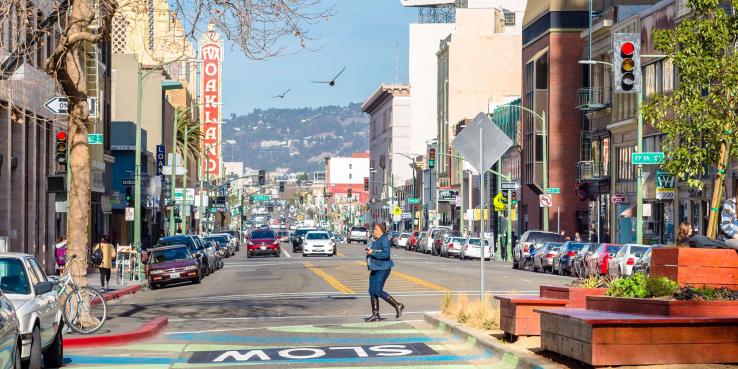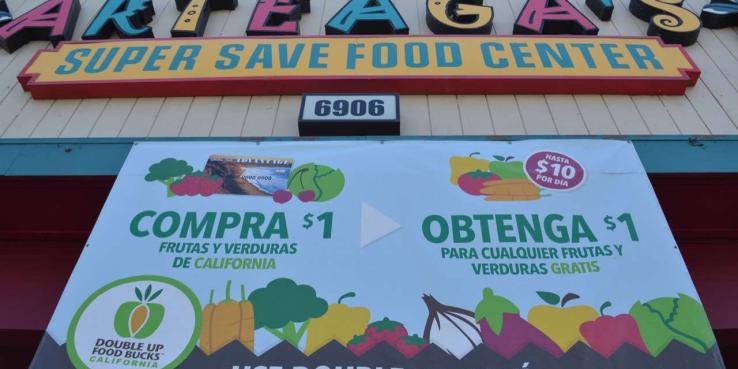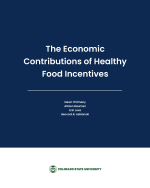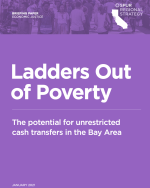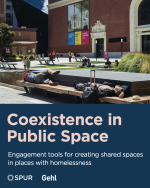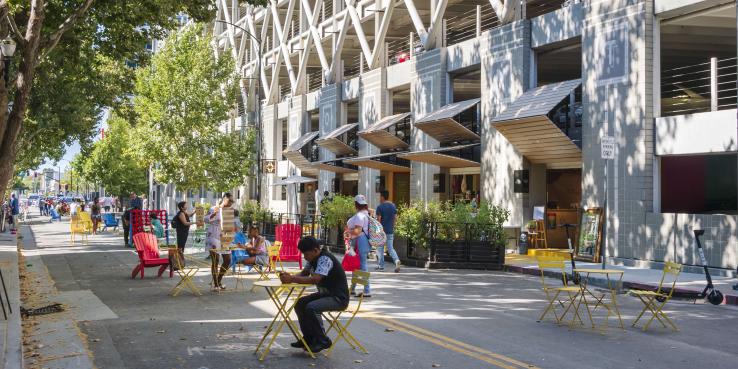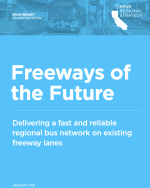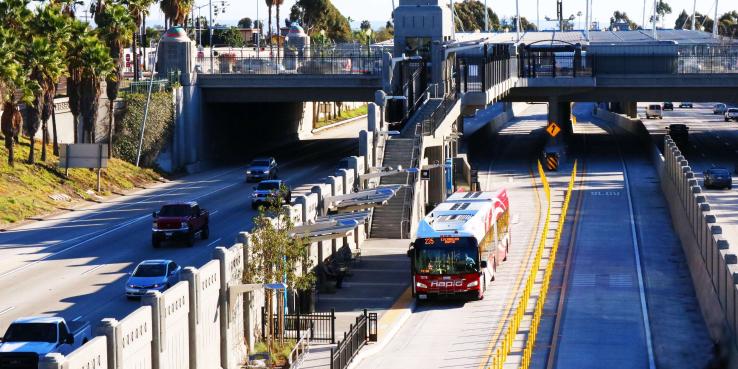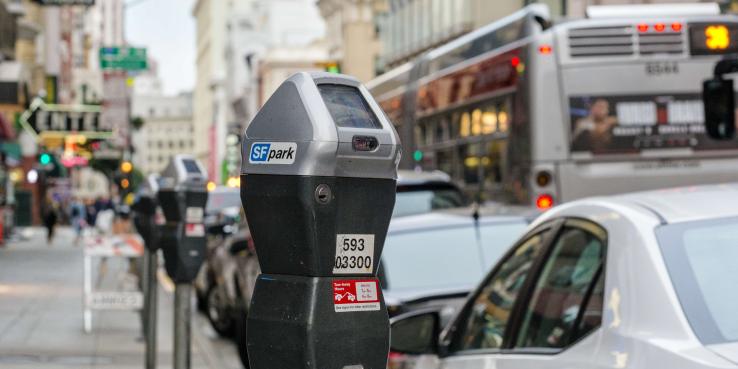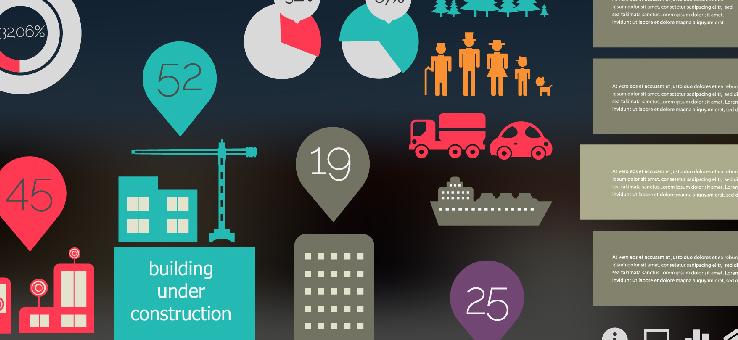
California Must Seize the Opportunity to Improve Health for Less
News / Imagine if insurers paid for the prevention— not just the treatment – of severe medical conditions. What if the health care system could help people improve their health today while also preventing diabetes or reducing the risk of heart attacks tomorrow? With the end of the COVID-19 pandemic in sight, the California Department of Health Care Services is working on doing just that.
Remembering Anne Halsted
News / Long-time SPUR board member and former Board Chair Anne Halsted, one of the organization’s great champions and a vital civic leader in the San Francisco Bay Area, passed away on March 13. Anne was a phenomenal woman with a distinguished history of civic engagement, neighborhood activism and mentoring women in their careers.
Investment in City Infrastructure Is an Investment in America's Future
News / Metropolitan areas have had a difficult year, navigating concurrent crises from rolling out mass vaccination campaigns, reckoning with impacts of systemic racism and addressing climate change — all while preparing for challenges such as impending evictions and the uncertainty of what the future of work will be. SPUR, Chicago’s Metropolitan Planning Council and New York’s Regional Planning Association believe that there is one urgent priority our federal government can address to help cities jump start their recovery: investing in infrastructure.
Keeping the Water On
Policy Brief / Due to COVID-19, Governor Newsom has issued a moratorium on shutting off water service when people can’t pay their bills. But eventually, customers who have fallen behind will face either paying a large lump sum or losing water service. SPUR proposes a combination of solutions that can prevent shutoffs for vulnerable families while preserving the financial health of water agencies.
Why California Has Too Much Parking and How It’s Making Climate Change and the Housing Crisis Worse
News / Laws that require new buildings to provide a minimum number of parking spaces are undermining California’s investment in affordable housing, public transit and environmental resiliency. A recent SPUR Digital Discourse discussed the state’s role in mitigating the over-parking crisis.
Building the Future Together: Our Goals for SPUR’s Work in Oakland
News / Incoming Oakland Director Ronak Davé Okoye shares her goals and vision for SPUR’s work in Oakland. Through a participatory process that allows a cross-section of people to imagine and develop ideas together, we can get to better outcomes for Oaklanders: more housing across income and type, authentic relationships between residents and the public and private sectors, responsive systems, shared prosperity.
Expanding Healthy Food Incentives Increases Community Wealth
News / For years now, research has shown that healthy food incentive programs, like SPUR’s Double Up Food Bucks, improve health. What new research shows, in a more comprehensive way than ever before, is that healthy food incentive programs also improve community wealth.
The Bigger Picture: Seven Ideas for Downtown San José
SPUR Report / SPUR’s Bigger Picture series proposes ideas for key locations in San Francisco, San José and Oakland. Each provides an opportunity to tackle major regional challenges through local planning processes. Our first report looks at the western side of downtown San José, where a major rail station expansion, a park re-envisioning process and a record number of proposed developments are signaling big changes for the neighborhood.
The Bigger Picture
SPUR Report / SPUR’s Bigger Picture series proposes ideas for key locations in San Francisco, San José and Oakland. Each exploration represents an opportunity to tackle major regional challenges through local planning processes. And, conversely, each suggests how big investments in infrastructure can — if planned carefully — bring about positive transformation for the immediate neighborhood.
Alameda County Joins a Growing Movement to Buy Better Food
News / Alameda County correctional facilities spend more than $20 million annually on food, but until recently there was no way to evaluate whether these purchases lived up to county’s values. This changed last month, when the Alameda County Board of Supervisors approved the Good Food Purchasing policy to see how well their food purchasing supports a healthy, local, sustainable and fair food supply chain.
How Do Fines and Fees Hurt Californians — and What Can the State Do About It?
News / Fines and fees are an often-overlooked aspect of California’s criminal legal system. A recent SPUR forum took a close look at the role these charges play in a starkly inequitable, illogical and unjust system. Our panelists discussed the harms caused by fines and fees, why they cost too much, who they impact most and how to end biased enforcement.
The Economic Contributions of Expanding Healthy Food Incentives
Research / Broad expansions of healthy food incentives would provide powerful economic benefits – for families, grocers, and farmers, as well as more broadly among the state economies where incentive programs are expanded. The findings in this study demonstrate that state and federal policymakers would be wise to double down on their support for these programs.
Ladders Out of Poverty
Policy Brief / Tens of thousands of households in the Bay Area struggle to pay their bills each month, a situation only worsened by the COVID-19 pandemic. The region should look to the promise of unrestricted cash transfer programs, which give people money with no specific requirements on how it is spent. SPUR looks at the successes of existing programs and offers five possible options to consider.
Where Do We Go From Here? SPUR Sets New Vision and Long-Range Goals
News / With vaccines rolling out and stable national leadership in place, we can trust that we will, eventually, reemerge from the COVID-19 pandemic. The question now is: Reemerge into what? To return to “normal” would be to reembrace a way of living that was neither sustainable nor equitable. To meet this moment, SPUR has articulated a bold vision statement and evolved our organizational mission.
Coexistence in Public Space
SPUR Report / As more and more Bay Area residents find themselves without homes, many have defaulted to living in public parks, plazas and squares. For other users of these spaces, the presence of unhoused residents renders them unwelcoming or even unsafe. How might we design and manage public space for coexistence, so that people of all backgrounds can find joy, belonging and safety there?
Five Ideas for Rebuilding Retail in the Post-Pandemic City
News / The growth of online shopping has thrown the fate of retail stores into question — a challenge exacerbated by COVID-19 lockdowns. As we plan for a future when gathering and in-person activities are safe again, it's time to look beyond a return to the status quo and rethink retail as a tool for social and economic transformation. SPUR proposes five experimental ideas to explore.
COVID-19 and San Francisco’s Budget Deficit Lead to Lingering Questions about Spending of Soda Tax Revenue
News / Every year a committee of experts recommends how San Francisco's soda tax revenue should be spent. Unlike years past, the board and mayor did not adopt the majority of the recommendations most likely due to the financial toll COVID-19 has taken on cities. SPUR recommends that next year the mayor and Board of Supervisors follow the recommendations of the committee, allowing for greater transparency.
Freeways of the Future
SPUR Report / Imagine a fast, reliable and coordinated regional express bus network operating on a system of freeway express lanes connecting transportation hubs throughout the Bay Area and beyond. SPUR recommends six broad actions to support the development and implementation of a coordinated regional express bus vision through institutional reforms, infrastructure coordination and policies to convert existing freeways into a central part of the region’s equity solutions.
How to Repurpose Bay Area Freeways for Fast and Reliable Regional Public Transit
News / Imagine a Bay Area where your school, your job and your friend in the next county are no more than 30 minutes away via convenient, reliable buses zipping along uncongested freeway express lanes throughout the day. This vision is not just appealing — it's essential to delivering on our region’s transportation goals. SPUR’s latest report proposes a regional bus strategy to make it a reality.
How to Solve the Transit Budget Crunch: Price the Private Use of Public Streets
News / COVID-19 has been catastrophic for public transit. Plunging fare and tax revenues are forcing drastic cuts. In a guest post for SPUR, two UC Davis law professors suggest that there’s a solution right under our feet: Make private drivers pay market rates to park on the public’s roads. And yes, they argue, it’s legal.


